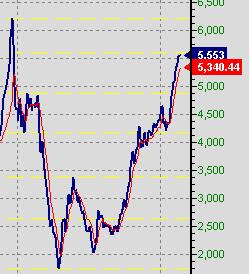So, you're thinking of buying a day trading system? Well there is one way to find out if it works and here it is:
Ask for the real time track record.
That's how many real dollars has it made, in the market for the seller, over the long term 2 years.
Ask for it and we can guarantee you won't get one.
Why?
Because day trading doesn't work and is based upon logic that is flawed.
You may get some testimonials (lucky traders after a couple of trades or friends) or a hypothetical track record of the day trading system.
Let's consider what hypothetical means - In hindsight.
That's right, you can look at previous price history and make a track record up knowing where prices have been!
Well that's really hard, a child could do that
If I knew the closing prices would I make money?
UMM Hard question.
Why are there so many day trading systems sold?
Because, they appeal to the greed and ignorance of people and who don't ask the obvious question:
Have you ( the vendor) made money?
Of course they haven't, why would they sell it? For 50 - 100 dollars?
Day trading system vendors tend to fall into 2 categories:
1. Good writers (they know how to write great copy but have never traded) and know how to appeal to greed.
2. Failed traders or brokers, who know the language, sound knowledgeable, but can't make money.
Why don't day traders make money longer term?
Well the logic it is based on is dumb.
Let's see.
We have trillions of dollars traded everyday and yet they think they can pinpoint ranges within a day or a few hours when these moves are proven to be random - yeah right.
Stops
Are to close, volatility catches them out and they lose more than they win.
That would not be so bad if they could run their profits to cover the majority of losses they take.
Can they do this?
Of course not!
Their grateful to scalp a few points, however these never make up for the huge losses they incur.
The result with forex day trading systems?
A wipe out of equity.
If you don't believe the above, ask for the real time track record over the longer term, audited, of their own accounts making money and you won't get one.
Conclusion is: Don't use a day trading system.
About the Author
MORE FREE BETTER TRADING INFO
On all aspects of becoming a profitable trader including free essential downloads and info and an exclusive
Gann Trading Course visit our website at
http://www.net-planet.org/index.html










